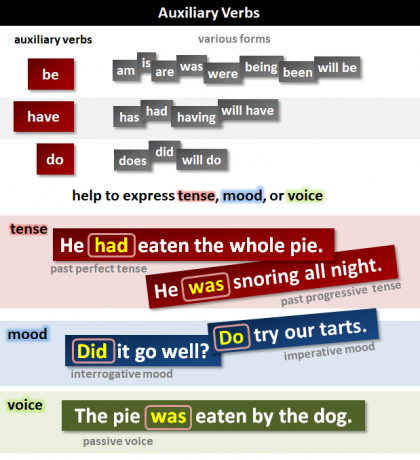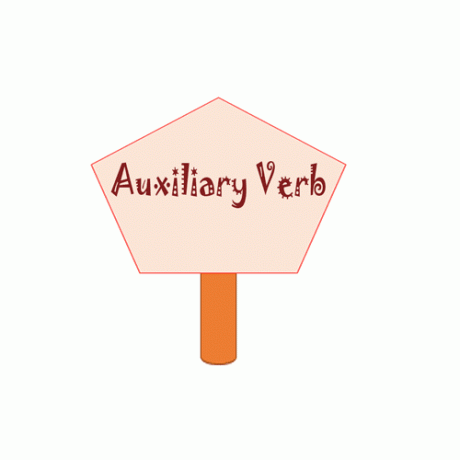Modal Auxiliary Verb Material: Formulas, Example Sentences and Questions
Loading...
The sentence "Bayu must go to the hospital" can be changed into English to "Bayu must go to the hospital". Not only verbs, in this sentence there is also an element of "must" which is one type of modal auxiliary verb in English.
Besides must, other types are can, should, may and might. Then, what is the function of the modal auxiliary verb in a sentence? The answer is in the following explanation complete with a discussion of each type and examples of its use.
List of contents
Understanding Modal Auxiliary Verb

When understanding modal verbs, the concept of auxiliary verbs is also important to understand because they are related. Here's what both mean:
1. What are Auxiliary Verbs?
English sentences use two types of verbs, namely the main verb (main verb) and the auxiliary verb (helping verb). In certain cases, the main verb does not always provide complete information so it needs to be clarified by the auxiliary verb.
Auxiliary verbs are auxiliary verbs that provide additional information that is not contained in the main verb so that the meaning of the sentence is conveyed clearly.
Helping verbs can also be considered as markers that appear in sentences. The marker is related to the meaning provided by the auxiliary verb. So, helping verbs can have a grammatical meaning or a functional meaning. What does it mean?
- Functional meaning. That is, the auxiliary verb used in a sentence contains meaning in terms of its function. For example “Do you know her?” Use do as a question mark.
Another example that has been mentioned in the opening paragraph is “Bayu must go to the hospital” including “must” to express a necessity.
- Grammatical meaning. That is, the auxiliary verb used in the sentence contains a grammatical meaning. For example, the sentence "Anya will move to her new house", has "will" as a future tense marker.
2. What is Modal Auxiliary Verb?
In the understanding of the previous auxiliary verb, one example of a modal verb appears is "must". The definition of modal auxiliary verb is a type of auxiliary verb used to express modality in a sentence.
Modality is additional information in a sentence that contains a statement of the speaker's attitude towards the topic being discussed or attitude towards the interlocutor. The things discussed can be in the form of circumstances, actions and events.
In the previous example, "Bayu must go to the hospital", the use of "must" indicates that the speaker considers going to the hospital as an act that must be done.
In addition, the presence of "must" which is positioned before the main verb also indicates that the act has not been done by the speaker. With the presence of modal verbs, the meaning of the main verb can be modified to further clarify the intent of the speaker.
Read: Passive Voice
Type of Modal Auxiliary Verb

Not only must, modal verbs also have other types which include will, would, may, might, should, shall, can and could. These modal verbs are also known as core modals in English.
The table below contains an explanation of each modal verb complete with its function in the sentence:
| No | Modal Auxiliary Verb | Function |
|---|---|---|
| 1 | Will | Expressing the possibility that something will happen in the near future or in the future someone wants to do, makes an appointment with someone else, offers something and asks for something. In the negative form (will not or won't) the modal verb will is used to express impossibility. |
| 2 | would | Stating something that might happen in the future (less chance than will), stating a hypothesis or supposition and asking/offering something. Advertisement When it comes to asking and offering something, the level of politeness of would is higher than will. |
| 3 | May | Expressing doubts about something that could happen in the near future or in the future, asking for permission formal, giving formal permission, guessing something that might have happened and asking something formally polite. In negative sentences, the modal verb may is often used to deny permission or prohibit. |
| 4 | Might | Its function is almost the same as may. The difference with may is that might can be used in past or present sentences and has a higher level of formality and politeness. |
| 5 | Shall | Expresses the necessity to do something at that moment. In usage, shall is an archaic version of will. The meaning is a mixture of modal verbs will and must. |
| 6 | Should | Expressing a necessity in the past tense, giving suggestions or criticism and expressing regret. |
| 7 | Must | Expressing necessity at a strong level and expressing confidence in an opinion or thing. |
| 8 | can | Expressing the ability to do something, showing one's potential to do something, offering help to others and asking for help from others (interrogative form). |
| 9 | Could | Expressing the ability to do something (uncertain level, lower than modal verb can) and offering or asking for help in a more polite and formal manner. |
Auxiliary Verb Modal Modal Formula

Composing correct sentences with modal verbs, it is necessary to pay attention to the formulas that apply in English, namely:
- Positive sentence form formula
Subject + modal verb + main verb + object + adverb
- Formula for negative sentences
Subject + modal verb + not + main verb + object + description
- Question form formula
Modal verb + main verb + object + adverb
Read: Conjunction
Difference between Auxiliary Verb and Modal

From the previous understanding, it is increasingly clear that auxiliary verbs and modal verbs are not two different things. Because, modal verb is one type of auxiliary verb.
So, auxiliary verbs in English are divided into 2 types, namely primary verbs and modal verbs. Primary verbs or main auxiliary verbs consist of be, have and do. While the modal verb consists of 10 verbs that have been explained in the previous section.
Example Sentences of Modal Auxiliary Verb

Here are some examples of sentences that use modal verbs:
- We will have to take the bus. (declare something that will definitely be done)
- I will come and see you next Monday. (states a promise)
- It would be very pricey to stay in an ABC hotel. (state the hypothesis)
- Our parents may be coming to see us tomorrow morning. (states an uncertain possibility)
- Might I ask you one important question? (ask for permission politely and formally)
- Uncle John can help you to fix this bicycle. (expressed ability to help)
- Could you turn on the air conditioner? (ask for help politely)
- Mommy shall go to the office now, see you later, kids! (said he would go because he had to)
- You should prepare earlier. (states a suggestion)
Read: Part of Speech
Example of Auxiliary Verb Questions

Some examples of questions about modal verbs are:
- I don't want to tell Amber today, but I ….. tell her tomorrow.
The answer to complete the question is the modal verb "will".
- It is a sunny day today, I …. need an umbrella.
The answer is "will not".
- Bani thought he ….. be late for the class, so she took a taxi to go there faster.
The answer to fill in the blanks is "would".
- I'm not really sure, but I think my phone ….. broken.
The answer is "may be".
- I'm afraid you …..broken your ankle. I think you need an X-ray as soon as possible.
The answer to complete the sentence is "might have".
Auxiliary verb modal is a type of auxiliary verb that contains the meaning of modality in a sentence. Each modal verb has its own function that needs to be understood so that it is not wrong to apply it in a sentence.
X CLOSE
Advertisements
ADVERTISEMENT
X CLOSE
